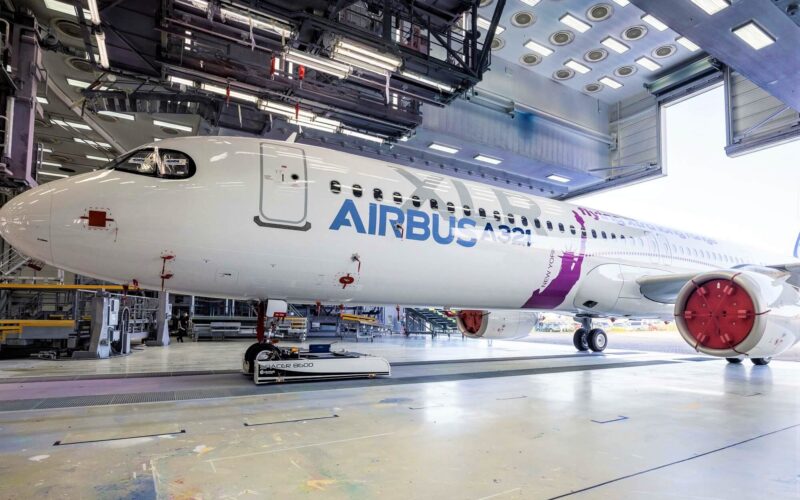The Federal Aviation Administration (FAA) has approved design requirements for certain Airbus A321XLR aircraft parts addressing safety concerns related to the model’s Rear Center Tank (RCT).
According to the FAA document seen by Reuters on December 8, 2022, the US aviation regulator will require Airbus to make some A321XLR fuselage modifications. Since the RTC tank is located at the lower fuselage area, which partially replaces the rear cargo compartment in comparison to older generation planes, the FAA said Airbus will need to lower half of the fuselage near the longitudinal RCT area.
The area should be made fire-resistant, diminishing potential safety risks to passengers, according to the document.
The change is necessary “to establish a level of safety equivalent to that established by the existing airworthiness standards,” the FAA was cited as saying.
However, industry sources ponder whether the design changes will hinder the A321XLR range since the improvements to the fire safety design around the tank will potentially add more weight.
What is special about the A321XLR?
The A321XLR narrow-body jet, which was officially launched during the Paris Air Show in 2019, is planned to fly as far as 4,700 nautical miles (8,700 kilometers), making it cheaper for its operators to offer longer flights when compared to the operating cost of larger twin-aisle aircraft.
The unique range is enabled by a permanent RCT, which can hold 12,900 liters of fuel. The RTC design solution allows the A321XLR to fly longer routes connecting destinations like New York (JFK) and Rome (FCO), Tokyo (HND) and Sydney (SYD) or Houston (IAH) and Santiago (SCL) without a refueling stop.
According to Airbus, the jet burns 30% less fuel per seat in comparison to the previous-generation aircraft.
Designers also equipped the aircraft with a strengthened landing gear and an optimized wing trailing-edge flap to increase take-off performance, according to Airbus.
When will the A321XLR enter commercial service?
It was estimated that the A321XLR would enter service in 2021 or 2022. However, it did not happen due to disruptions in supply chains caused by the COVID-19 pandemic.
The aircraft conducted its first flight in June 2022. The date of entry to commercial service was moved to late 2023, but the manufacturer delayed the event even further, citing regulatory issues. Now the European plane maker expects plane deliveries to start in 2024.

